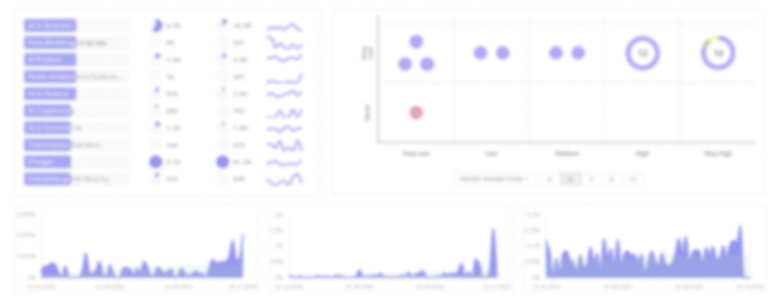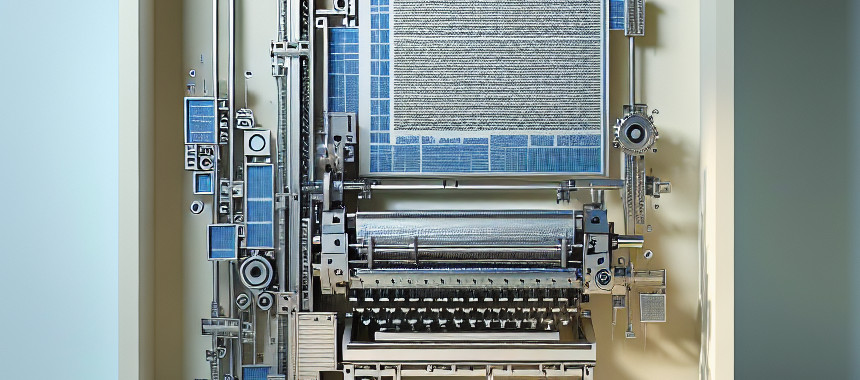
Bone Health Report
: Analysis on the Market, Trends, and TechnologiesThe bone-health market is sizable and growing: internal data places the 2025 market at USD 12.3 billion and a projected CAGR of 6.8% for the supplements/consumer segment, framing a long-term expansion to USD 23.8 billion by 2035. External market sources report consistent, nearby valuations (USD 11.1–13.6 billion in 2022–2023) and forecast mid-single to high-single digit CAGRs through the late 2020s, underscoring demand driven principally by aging demographics, preventive care uptake, and ingredient innovation.
So what: the combination of a multi-billion dollar consumer supplements market, parallel medical-device growth (densitometers and bone-growth stimulators), and active R&D in biomaterials creates three commercially accessible entry points—nutraceutical formulations, diagnostics-as-a-service, and regenerative implant materials—that attract different investor risk/return profiles.
This report was last updated 142 days ago. Spot an error or missing detail? Help us fix it by getting in touch!
Topic Dominance Index of Bone Health
To identify the Dominance Index of Bone Health in the Trend and Technology ecosystem, we look at 3 different time series: the timeline of published articles, founded companies, and global search.
Key Activities and Applications
- Development and commercialization of clinically validated nutraceuticals (calcium, vitamin D/K, collagen, glucosamine, chondroitin) targeted to geriatric and at-risk populations; retail channels concentrate in pharmacies and supermarkets with growing e-commerce penetration Bone and Joint Health Ingredients Market | IMARC Group.
- Screening and risk stratification using bone densitometry and biochemical bone-marker assays to enable early intervention and reduce fracture incidence; hospital and diagnostic center adoption remains dominant while point-of-care devices expand into primary care Bone & Mineral Testing Market – Allied Market Research Global Bone Densitometer Devices Market – Data Bridge Market Research.
- Bone repair and regeneration: synthetic bone graft substitutes, bioactive ceramics, and patient-specific 3D printed scaffolds for spinal fusion, trauma, and dental reconstruction.
- Non-invasive therapeutics and home devices: low-intensity vibration and ultrasound or PEMF bone-growth stimulators marketed to accelerate healing and manage osteopenia outside hospital settings.
- Data-driven care pathways: AI tools that mine routine imaging (CT/DEXA) to flag low bone quality and predict fracture risk, enabling targeted clinical follow-up and reimbursement submissions.
Emergent Trends and Core Insights
- Ingredient convergence and clinical substantiation: formulators combine minerals, vitamins, collagen peptides, and botanicals while investing in trials to support claims, because payer and clinician acceptance increasingly require evidence beyond composition claims.
- So what: market differentiation now depends on clinical data and bioavailability tech rather than basic composition alone.
- Diagnostics moving to predictive models: AI applied to CT/DEXA and biochemical markers creates earlier, more actionable risk stratification that reduces downstream fracture care costs.
- So what: payers and health systems will favor tools that integrate with workflows and generate measurable cost offsets.
- Non-radiation, point-of-care screening gains traction (ultrasound sonometry, QUS) where DXA access is limited; vendors target primary care and community screening programs.
- So what: developers of supplement or therapy commercialization strategies should pair consumer offerings with accessible screening to close the patient identification gap.
- Regenerative materials and surgical alternatives scale: bioactive glass, coral-derived grafts, and resorbable fiber implants are moving from niche clinical trials into broader use in spine and trauma procedures.
- So what: surgeons and hospital procurement teams will reallocate spend toward materials that shorten OR time and reduce revision rates.
- Cross-segment commercialization strategies emerge: pairing diagnostics, adherence tech, and therapeutic products increases lifetime customer value and accelerates reimbursement conversations.
Technologies and Methodologies
- AI and ML for image analytics and fracture-risk prediction: algorithms extract spinal and hip biomarkers from CT/DEXA to produce actionable scores; regulatory clearances and clinic integrations increase clinical adoption.
- Microencapsulation and formulation science to increase mineral and peptide bioavailability; time-release and targeted absorption technologies raise effective potency per dose Mineral Supplements market tech note | GMI Insights.
- Quantitative ultrasound and radiation-free screening platforms for community settings; these devices trade some precision for accessibility and lower cost.
- Advanced biomaterials and additive manufacturing: bioceramics, bioactive glass, hydroxyapatite composites, and 3D-printed patient-specific scaffolds that tune porosity and resorption kinetics for targeted indications.
- Electrotherapeutics and wearable mechanical stimulation (LIV, PEMF, LIPUS): home and clinic devices that support healing and density maintenance are paired with digital adherence/monitoring apps to improve outcomes Bone Growth Stimulators Market Share Report 2022-2028 | GMI Insights.
Bone Health Funding
A total of 221 Bone Health companies have received funding.
Overall, Bone Health companies have raised $3.5B.
Companies within the Bone Health domain have secured capital from 626 funding rounds.
The chart shows the funding trendline of Bone Health companies over the last 5 years
Bone Health Companies
- CoreBone — Supplies coral-derived, bioactive bone grafts with CE approval; the material emphasizes porosity and resorption tuned to support natural bone in-growth and reduce reliance on allograft sources. CoreBone targets spine and trauma segments where surgeon demand for consistent, non-human grafts is rising.
- Ossio — Maker of OSSIOfiber™, a bioresorbable fixation technology designed to replace permanent metal hardware and allow natural bone healing; clinical positioning focuses on lower complication rates and fewer revision surgeries. Ossio sells into orthopedic and trauma OR channels and emphasizes long-term patient outcomes as a commercial differentiator.
- bonescreen — MedTech software extracting spinal biomarkers (SpineQ/SpineR) from existing CT scans to deliver opportunistic osteoporosis screening within radiology workflows; the company focuses on seamless integration to drive clinician uptake. bonescreen's model reduces screening friction by leveraging imaging already acquired for other indications.
- Echolight — Developer of a radiation-free ultrasound system for early osteoporosis detection and monitoring; the device targets primary care and office-based screening to expand access where DXA is unavailable. Echolight frames safety and accessibility as its commercial advantages for broad screening programs.
(Each company description sources company pages; facts about their technology and go-to-market positioning are supported by the company citations provided above.)
Identify and analyze 2.4K innovators and key players in Bone Health more easily with this feature.
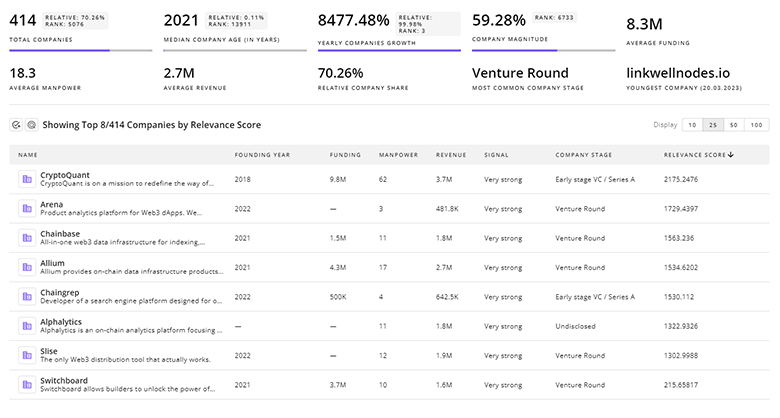
2.4K Bone Health Companies
Discover Bone Health Companies, their Funding, Manpower, Revenues, Stages, and much more
Bone Health Investors
TrendFeedr’s investors tool offers a detailed view of investment activities that align with specific trends and technologies. This tool features comprehensive data on 594 Bone Health investors, funding rounds, and investment trends, providing an overview of market dynamics.
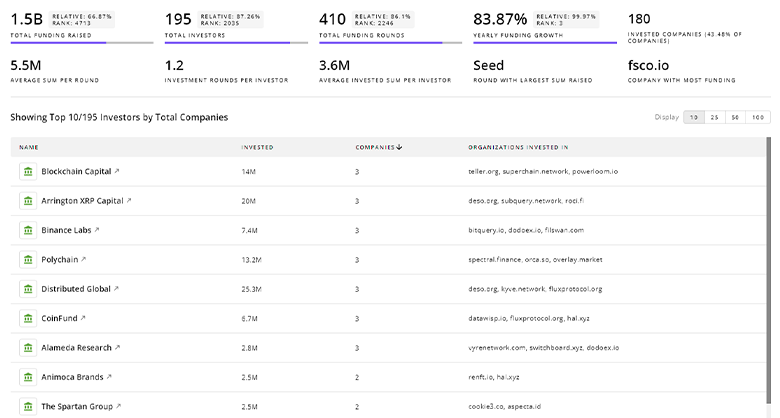
594 Bone Health Investors
Discover Bone Health Investors, Funding Rounds, Invested Amounts, and Funding Growth
Bone Health News
Stay informed and ahead of the curve with TrendFeedr’s News feature, which provides access to 2.9K Bone Health articles. The tool is tailored for professionals seeking to understand the historical trajectory and current momentum of changing market trends.
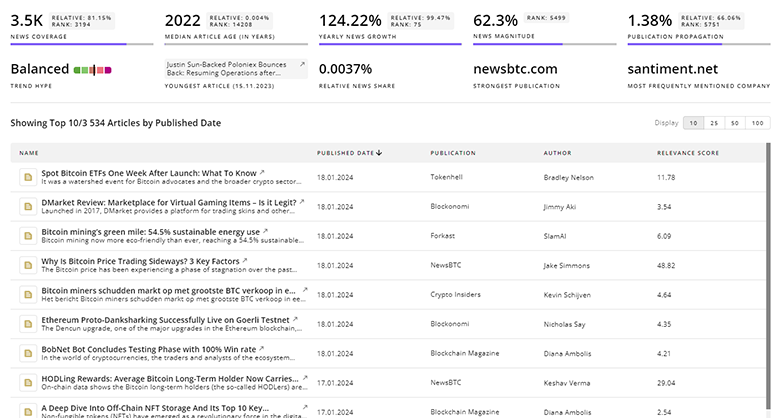
2.9K Bone Health News Articles
Discover Latest Bone Health Articles, News Magnitude, Publication Propagation, Yearly Growth, and Strongest Publications
Executive Summary
The bone-health landscape presents parallel, investible pathways: (1) consumer-facing, evidence-backed nutraceuticals and functional foods that scale through pharmacy and e-commerce channels; (2) diagnostic and data-service plays that leverage AI to convert routine imaging into actionable fracture-risk signals; and (3) regenerative biomaterials and device innovations that target surgical markets with demonstrable reductions in complications and revisions. Market sizing from internal analysis (USD 12.3 billion in 2025; 6.8% CAGR) and external reports (USD 11–13.6 billion baselines with 7.5–8.5% CAGRs) converge on steady, multi-billion growth over the next decade Bone & Joint Health Supplements Market – MarketsandMarkets Bone & Joint Health Supplements Market Size – GMI Insights. Strategic winners will be firms that combine clinical validation with workflow integration—diagnostic companies that feed targeted treatment funnels, supplement firms that pair products with accessible screening, and biomaterials companies that demonstrate OR efficiency and long-term clinical benefit.
Interested in enhancing our coverage of trends and tech? We value insights from experts like you - reach out!
